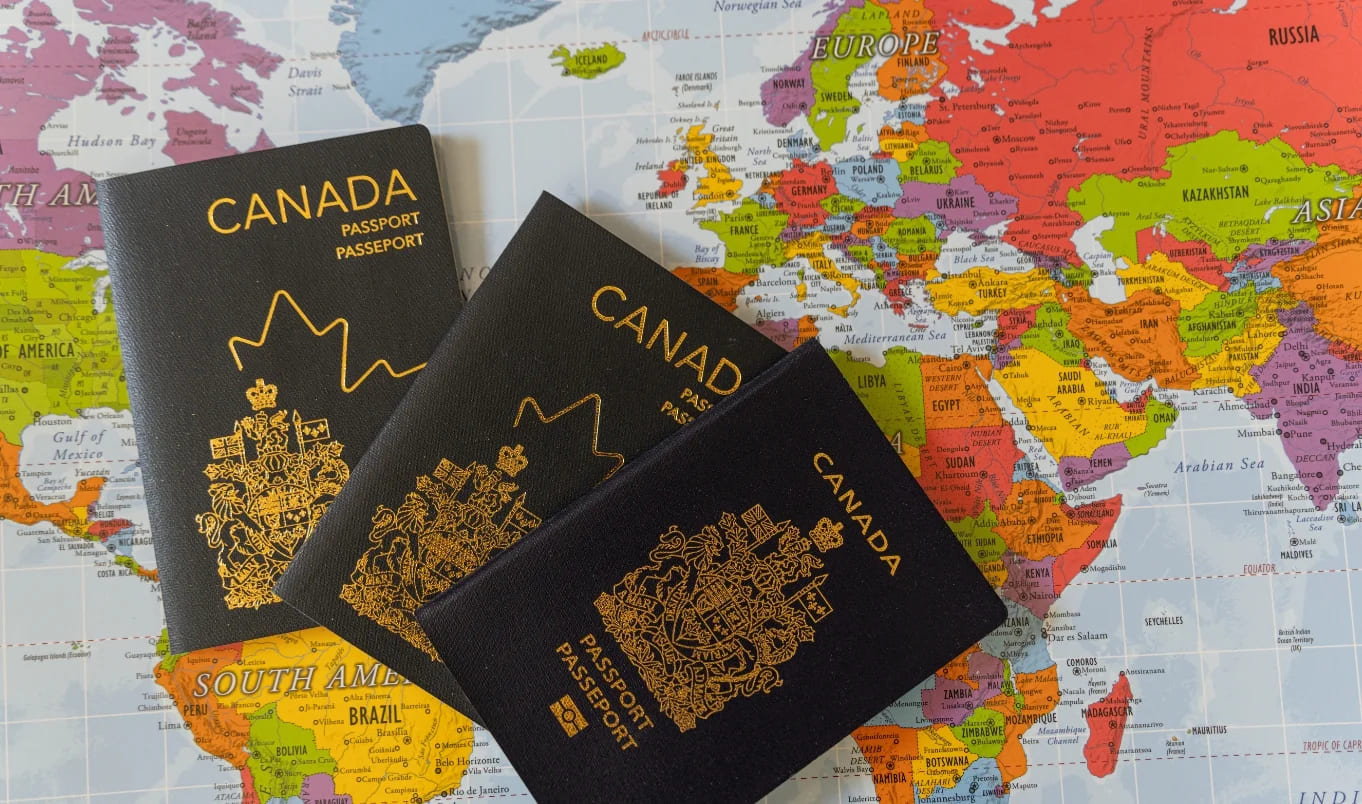Top Tips for Succeeding in the Federal Skilled Trades Program

The Federal Skilled Trades Program (FSTP) is one of the primary immigration pathways for skilled workers seeking permanent residency in Canada. Tailored specifically for individuals in trade occupations, the FSTP is a vital component of Canada’s broader Express Entry system. This article provides a comprehensive overview of the Federal Skilled Trades Program, including how it works, eligibility criteria, and actionable tips to enhance your chances of success.
What is the Federal Skilled Trades Program?
The Federal Skilled Trades Program is designed for skilled workers who want to become permanent residents based on being qualified in a skilled trade. Introduced in 2013, the FSTP was established to address labor shortages in specific skilled trades and support Canada's economic growth. It is part of the Express Entry system, which is a points-based application management system for three federal economic immigration programs: the Federal Skilled Worker Program (FSWP), the Federal Skilled Trades Program (FSTP), and the Canadian Experience Class (CEC).
How Does the Federal Skilled Trades Program Work?
The FSTP operates under the Express Entry system, which uses the Comprehensive Ranking System (CRS) to evaluate and rank candidates based on various factors such as age, education, work experience, language proficiency, and more. Applicants who meet the eligibility criteria for the FSTP can create an Express Entry profile, where they are entered into a pool of candidates. Periodically, Immigration, Refugees and Citizenship Canada (IRCC) conducts draws to invite the highest-ranking candidates to apply for permanent residency.
Eligibility Criteria for the Federal Skilled Trades Program
To be eligible for the FSTP, candidates must meet specific requirements related to work experience, language proficiency, education, and more. Here’s a breakdown of the key eligibility criteria:
Work Experience:
• Applicants must have at least two years of full-time work experience (or an equivalent amount of part-time work experience) in a skilled trade within the five years before applying.
• The work experience must be in a trade listed under one of the following National Occupational Classification (NOC) skill level B groups:
Major Group 72: Industrial, electrical, and construction trades
Major Group 73: Maintenance and equipment operation trades
Major Group 82: Supervisors and technical jobs in natural resources, agriculture, and related production
Major Group 92: Processing, manufacturing, and utilities supervisors and central control operators
Minor Group 632: Chefs and cooks
Minor Group 633: Butchers and bakers
Language Proficiency:
Candidates must meet the minimum required language levels in either English or French, which are:
• Canadian Language Benchmark (CLB) 5 for speaking and listening
• CLB 4 for reading and writing
• Language test results must be valid and obtained within the last two years.
Education:
• There is no formal education requirement for the FSTP. However, having a higher level of education can improve a candidate’s CRS score.
• If the candidate has completed their education outside of Canada, they can earn additional CRS points by obtaining an Educational Credential Assessment (ECA).
Job Offer or Certificate of Qualification:
Applicants must have either a valid job offer of full-time employment for at least one year or a certificate of qualification in that skilled trade issued by a Canadian provincial, territorial, or federal authority.
Admissibility:
Candidates must be admissible to Canada, meaning they must not have any criminal records, medical issues, or other factors that could prevent them from entering or staying in Canada.
Intention to Live Outside Quebec:
Applicants must plan to live outside the province of Quebec, which has its own immigration programs.
Top Tips for Succeeding in the Federal Skilled Trades Program
Successfully navigating the FSTP requires strategic planning and a clear understanding of the program’s requirements. Here are some essential tips to help you succeed:
1. Understand the NOC Codes and Choose the Right Occupation
The first step in applying for the FSTP is to identify your occupation under the National Occupational Classification (NOC) system. It’s crucial to choose the right NOC code that accurately reflects your job duties and responsibilities. Ensure that your work experience aligns with the descriptions provided in the NOC.
Tip: Thoroughly review the NOC descriptions and consult with industry professionals if needed to ensure you are selecting the correct occupation code. This step is critical as it affects your eligibility and the accuracy of your application.
2. Prepare for Language Testing
Language proficiency is a significant factor in the Express Entry system, and meeting the minimum language requirements is essential for FSTP eligibility. Invest time in preparing for your language test (IELTS for English or TEF for French) to achieve the required CLB levels.
Tip: Utilize online resources, take practice tests, and consider enrolling in language courses to improve your speaking, listening, reading, and writing skills. Achieving a higher language score can significantly boost your CRS score.
3. Gain Relevant Work Experience
Ensure that you have at least two years of full-time work experience in your skilled trade within the last five years. This experience must be at the level required for the trade, meaning you must have performed the essential duties outlined in the NOC description.
Tip: Keep detailed records of your work experience, including job descriptions, reference letters, pay stubs, and any other documentation that can verify your employment history. These documents will be crucial during the application process.
4. Secure a Valid Job Offer or Certificate of Qualification
A valid job offer or a certificate of qualification in your trade can significantly enhance your chances of receiving an invitation to apply for permanent residency. A job offer must be for full-time work for at least one year and must be supported by a Labour Market Impact Assessment (LMIA), unless exempt.
Tip: Network with Canadian employers in your trade to secure a job offer or research the process for obtaining a certificate of qualification in your trade from a Canadian authority. Some trades require you to take exams or undergo assessments to obtain the certificate.
5. Create a Comprehensive Express Entry Profile
Your Express Entry profile is your gateway to the FSTP. Ensure that all the information you provide is accurate and complete, as any discrepancies can lead to your application being rejected.
Tip: Double-check all entries in your profile, including work experience, language test scores, and educational credentials. Keep your profile updated with any new information, such as additional work experience or language test results.
6. Maximize Your CRS Score
While the FSTP has specific eligibility criteria, being competitive within the Express Entry pool is essential. The Comprehensive Ranking System (CRS) scores candidates based on several factors, and the highest-scoring candidates are more likely to receive invitations to apply.
Tip: Improve your CRS score by gaining additional work experience, improving your language test scores, obtaining a certificate of qualification, or securing a valid job offer. Consider applying for provincial nomination programs, which can add 600 points to your CRS score.
7. Stay Informed and Be Patient
The Express Entry system is dynamic, with regular changes to draw thresholds and program requirements. Stay informed about any updates or changes to the FSTP and the Express Entry system by regularly checking the IRCC website and other official sources.
Tip: Be patient and proactive in monitoring your Express Entry profile and the status of your application. If you do not receive an invitation to apply right away, consider ways to improve your CRS score or explore other immigration pathways.
8. Prepare for Life in Canada
While the application process is important, preparing for life in Canada is equally crucial. Research the cost of living, housing, healthcare, and employment opportunities in your desired province or territory.
Tip: Begin planning your transition to Canada by networking with professionals in your trade, learning about the Canadian workplace culture, and exploring resources available to newcomers. Being well-prepared will help you settle in more quickly and successfully integrate into Canadian society.
The Federal Skilled Trades Program offers a unique opportunity for skilled tradespeople to achieve permanent residency in Canada. By understanding the program’s requirements, preparing thoroughly, and strategically improving your CRS score, you can increase your chances of success. Keep these tips in mind as you navigate the application process, and remember that persistence and careful planning are key to achieving your goal of living and working in Canada.
Note: IndiBlogHub features both user-submitted and editorial content. We do not verify third-party contributions. Read our Disclaimer and Privacy Policyfor details.







